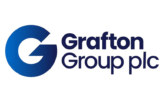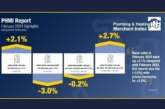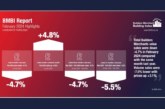
Mike Collins, Managing Director of Direct Route business to business debt recovery specialists and AccountAssyst online credit management, argues that if ever there was a time to review your credit management, it is now.
It is fantastic news that merchants have reopened. However, I believe the focus must now be on thinking differently. As a business we have worked with builders’ merchants for years, recovering debt of all sizes. During the pandemic, many had our number on speed dial and I’m pleased to say we recovered significant sums.
However, do you want your business in the position where avoidable write-offs are incurred because you are doing the same as you did pre-pandemic?
Here are five tips to reduce your overdue invoices and debt.
1: Don’t base credit agreements on credit reports alone.
The only realistic advice I can offer with regards to credit ratings and reporting limits is… be wary. We all know that credit reports are based upon the last accounts filed at Companies House. From the first available date, they’re already several months out of date.
Undoubtedly credit reports provide good indicators, and strong businesses with tangible assets remain so, but nobody knows how Covid-19 has damaged an individual business.
Some elements of credit reporting will help, such as payment data feeds which are going to be crucial as credit reporting organisations settle into the new norm. Credit reporting providers will quickly downgrade the rating on any business once alerted to overdue invoices of significance. Act immediately on this information to protect your interests.
Upload every customer to your credit reporting provider’s monitoring service to enable 24/7 knowledge about important changes. Act swiftly towards those with limits drastically (and suddenly) cut by your reporting agency. Withdraw limits and pursue overdue monies quickly. In the absence of satisfactory payment promises or positive feedback escalate to your chosen third-party route without delay.
2: Don’t automatically grant credit to new customers
New customers are always welcome, but why are new customers coming to you? Are they unhappy with their current provider(s), or could it be the other way round? What you want are long term loyal customers with a mutual appreciation for the business relationship; customers that pay you to terms, or close to them.
For new customers, a ‘tiny steps’ policy is advisable for granting credit until a trading pattern and important prompt payment evidence is established. Set out clearly the rules of engagement. Accept the ire of your sales team when activating speedy collection action on recently recruited late paying customers. If they know you mean business from the outset they will not re-offend.
3: Trade Credit Insurance — know the new limits
With the UK government confirming it will provide guarantees for all currently available trade credit insurance, builders’ merchants (and the BMF) breathed a sigh of relief. However, insurers are nevertheless reducing and pulling limits on customers for future trading.
When a customer’s credit insurance limit has been downgraded to £nil is it a sign of serious financial distress? Has the customer been reported as a late payer by another insured party? If you cannot get a limit for an existing debtor customer, escalation of your collection process should be immediate.
If a new customer is asking for supply of goods on credit and you cannot get a limit, is it because the insurer has a potential claim in progress from another insured unpaid party? Limits are granted largely based on credit reports which are being significantly downgraded. Whilst 100% of the new credit reporting limit may be supported by your policy, this is not the old pre-pandemic limit.
Is it time to revise credit limits on all customers?
4: Review your collections process — room for improvement?
Ensure you have strictly defined stages in your credit control process, for example: on stop at 7 days overdue, with the first gentle nudge reminder sent on day 10. Second reminder on day 17. Final notice and deadline for payment on day 24; phone calls day 24 to 31. At day 31 if no payment or satisfactory response, automatically escalate to third party collection agency.
For values exceeding £XXX, or for primary regarded customers, refer to management for approval prior to escalation.
5: Third-party escalation — collections agency or solicitor legal route?
The landscape has changed. Acting quickly on overdue customers is the only option. But how can you achieve successful recoveries from customers prioritising their survival?
Insolvency options, such as Administrations, will come to the fore soon. When this happens procrastinators will not have been paid. Those taking prompt action will already have their monies secured.
A good debt collection agency will communicate with financially distressed debtors, achieving compromises within their financial means and palatable to you. Using a zero-cost debt collection agency, such as Direct Route, is probably the most logically viable.
By comparison it’s difficult to see merit in risking extra fees in solicitors or court costs. Months of court backlogs currently exist on court claim issues and enforcement. Can overrun bailiffs and High Court Enforcement Officers reasonably be expected to do their jobs effectively given social distancing measures?
All in all, avoid legal if possible. Communicating and negotiating with cash strapped customers will save time and fees.
A BMF service member, Direct Route Collections is keen to hear from merchants in need of help and advice during the concerning current climate. For more information, visit www.directroute.co.uk
Related news
Direct Route explains how merchants can collect cash and keep customers









